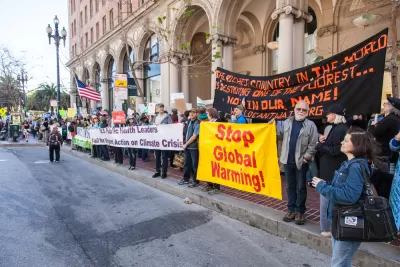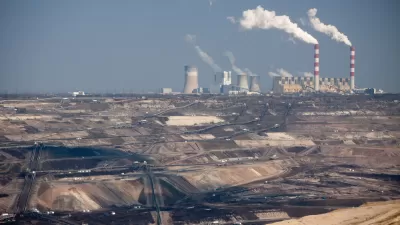Although clear climate communication is more important than ever, many people find even basic terminology about climate change confusing, research shows.

"A recent study found that some of the most common terms in climate science are confusing to the general public," reports Rebecca Hersher, leading scientists and activists to seek better ways of communicating with the public.
"Clear climate communication gets more important every day because climate change is affecting every part of life on Earth. Nurses, doctors, farmers, teachers, engineers and business executives need reliable, accessible information about how global warming is affecting their patients, crops, students, buildings and businesses."
The group of scientists working on the 2023 National Climate Assessment, "the most comprehensive, public-facing climate change report for the U.S.," has been tasked with improving the language used in the next report. Allison Crimmins, the director of the assessment, says "[c]limate scientists and people who communicate about climate science have a responsibility to think about the terminology they use." According to Crimmins, "one way to make the information clearer is to present it in many different ways."
For its part, "[t]he United Nations has also tried to make its climate change reports more accessible. The most recent report from the U.N. Intergovernmental Panel on Climate Change was more than 3,900 pages long and highly technical, but it also included a two-page summary that stated the main points in simple language, such as, 'It is unequivocal that human influence has warmed the atmosphere, ocean and land.'"
FULL STORY: Enough With The Climate Jargon: Scientists Aim For Clearer Messages On Global Warming

Planetizen Federal Action Tracker
A weekly monitor of how Trump’s orders and actions are impacting planners and planning in America.

Congressman Proposes Bill to Rename DC Metro “Trump Train”
The Make Autorail Great Again Act would withhold federal funding to the system until the Washington Metropolitan Area Transit Authority (WMATA), rebrands as the Washington Metropolitan Authority for Greater Access (WMAGA).

The Simple Legislative Tool Transforming Vacant Downtowns
In California, Michigan and Georgia, an easy win is bringing dollars — and delight — back to city centers.

The States Losing Rural Delivery Rooms at an Alarming Pace
In some states, as few as 9% of rural hospitals still deliver babies. As a result, rising pre-term births, no adequate pre-term care and "harrowing" close calls are a growing reality.

The Small South Asian Republic Going all in on EVs
Thanks to one simple policy change less than five years ago, 65% of new cars in this Himalayan country are now electric.

DC Backpedals on Bike Lane Protection, Swaps Barriers for Paint
Citing aesthetic concerns, the city is removing the concrete barriers and flexposts that once separated Arizona Avenue cyclists from motor vehicles.
Urban Design for Planners 1: Software Tools
This six-course series explores essential urban design concepts using open source software and equips planners with the tools they need to participate fully in the urban design process.
Planning for Universal Design
Learn the tools for implementing Universal Design in planning regulations.
Smith Gee Studio
City of Charlotte
City of Camden Redevelopment Agency
City of Astoria
Transportation Research & Education Center (TREC) at Portland State University
US High Speed Rail Association
City of Camden Redevelopment Agency
Municipality of Princeton (NJ)



























